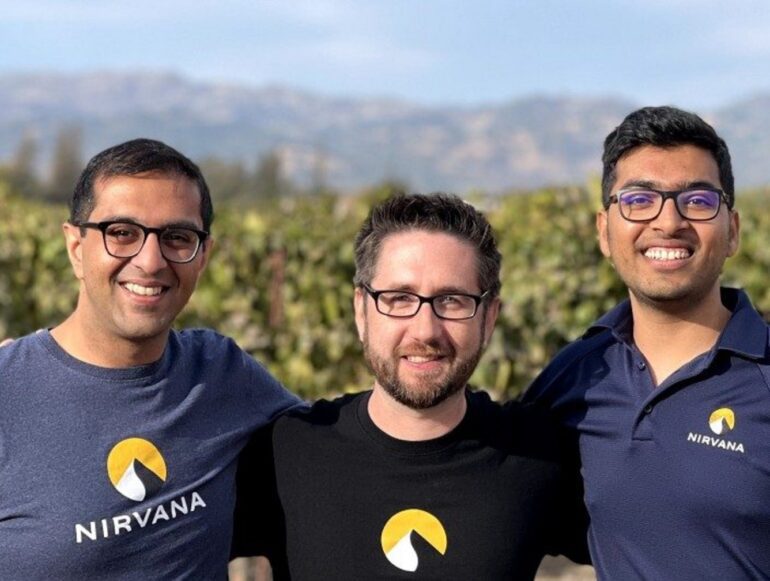TL;DR:
- Nirvana Insurance, an insurtech startup, secures $57 million in Series B funding.
- The company utilizes AI, telematics, IoT, and extensive trucking data to reshape commercial trucking insurance.
- Funding led by Lightspeed Venture Partners, with participation from General Catalyst and Valor Equity Partners, doubling the company’s valuation.
- Nirvana addresses the challenges faced by small trucking businesses, including rising fuel costs and insurance expenses.
- Their solution offers faster quotes and streamlined claims processes by leveraging data from truck sensors.
- The AI system assesses driving behavior and can provide up to 20% discounts for safe driving.
- The growing adoption of IoT in the trucking industry presents a substantial market opportunity.
Main AI News:
Nirvana Insurance, a pioneering insurtech startup, is making waves in the commercial trucking insurance sector. Armed with cutting-edge technologies like artificial intelligence, telematics, and the Internet of Things, along with a staggering 15 billion miles’ worth of trucking data, the company is poised to reshape the industry’s insurance landscape. Recently, Nirvana Insurance successfully closed an all-equity Series B funding round, raising an impressive $57 million. This substantial infusion of capital will be pivotal in advancing their robust big data platform, scaling up their workforce, and expanding their operations, with a primary focus on the trucking sector. The funding round was led by Lightspeed Venture Partners, with participation from General Catalyst and Valor Equity Partners. This round has effectively doubled Nirvana Insurance’s valuation, now exceeding $350 million post-investment.
Nirvana Insurance aims to tackle a pervasive issue within the trucking industry: the majority of truck fleets operate as small businesses, often struggling to maintain thin profit margins. The burden of rising fuel costs exacerbates their financial challenges, making it increasingly difficult for them to thrive. To compound matters, the mandatory requirement of insurance coverage for their vehicles further strains their resources. Typically, insurance premiums can cost between $15,000 and $20,000 annually per vehicle, a cost that continues to escalate. Moreover, the process of obtaining insurance quotes and policies can be a protracted affair, lasting several weeks, and the claims process can keep drivers off the road for extended periods.
Nirvana Insurance seeks to streamline and optimize every aspect of this cumbersome process. Their solution encompasses swift quote generation, tailored to the specific customer’s needs, and enhanced tools for policyholders to navigate claims efficiently.
The secret to Nirvana’s success lies in leveraging the wealth of data collected from sensors already embedded in trucks. These data points serve as the foundation for the creation of innovative risk models, setting Nirvana apart from its competitors. Rushil Goel, CEO and co-founder of Nirvana, emphasizes, “We leverage billions of data points from sensors on trucks to build risk models—no one else is doing this.“
While commercial trucks may appear less sophisticated than their consumer automotive counterparts, they have experienced a significant tech-driven transformation. A federal mandate in 2017 mandated the installation of electronic logging devices in all trucks, leading to a proliferation of these technologies. In the United States alone, the number of heavy trucks equipped with electronic logging devices ranges between 18 and 20 million, with a considerably higher number on a global scale. Even in the light truck market, these devices are present in approximately 30-40% of all vehicles. This robust adoption of IoT technology in the trucking sector signifies a lucrative market that is only poised to grow further.
In addition to its groundbreaking risk models, Nirvana has developed tools that allow customers to file and process claims using images and data captured by dashboard cameras. These sensors and cameras are capable of monitoring various driving behaviors, including braking habits, lane change signals, lane drifting tendencies, horn usage frequency, and honking locations.
The data collected by these cameras and sensors serves as the basis for an AI-powered system developed by Nirvana, which calculates premiums for its clients. Those deemed “safe” by Nirvana’s AI can enjoy discounts of up to 20% on their insurance premiums.
Raviraj Jain, a partner at Lightspeed Venture Partners, praised Nirvana’s forward-thinking approach, stating, “Commercial fleets today produce a tremendous amount of data, yet most insurers still insist on a cookie-cutter approach to insurance that does nothing to incentivize safety. Nirvana is bringing insurance into the modern era, changing how the industry considers risk.” With the IoT fleet management market showing no signs of slowing down, the growth and innovation demonstrated by Nirvana Insurance hold great promise for the future of fleet insurance and beyond.
Conclusion:
Nirvana Insurance’s successful funding round and innovative approach to commercial trucking insurance highlight the growing importance of data and technology in the insurance industry. Their ability to leverage IoT data and AI-driven risk models not only addresses the challenges faced by small trucking fleets but also sets a precedent for modernizing insurance practices. This shift towards data-driven solutions is likely to reshape the broader insurance market and incentivize safety in commercial fleets.

